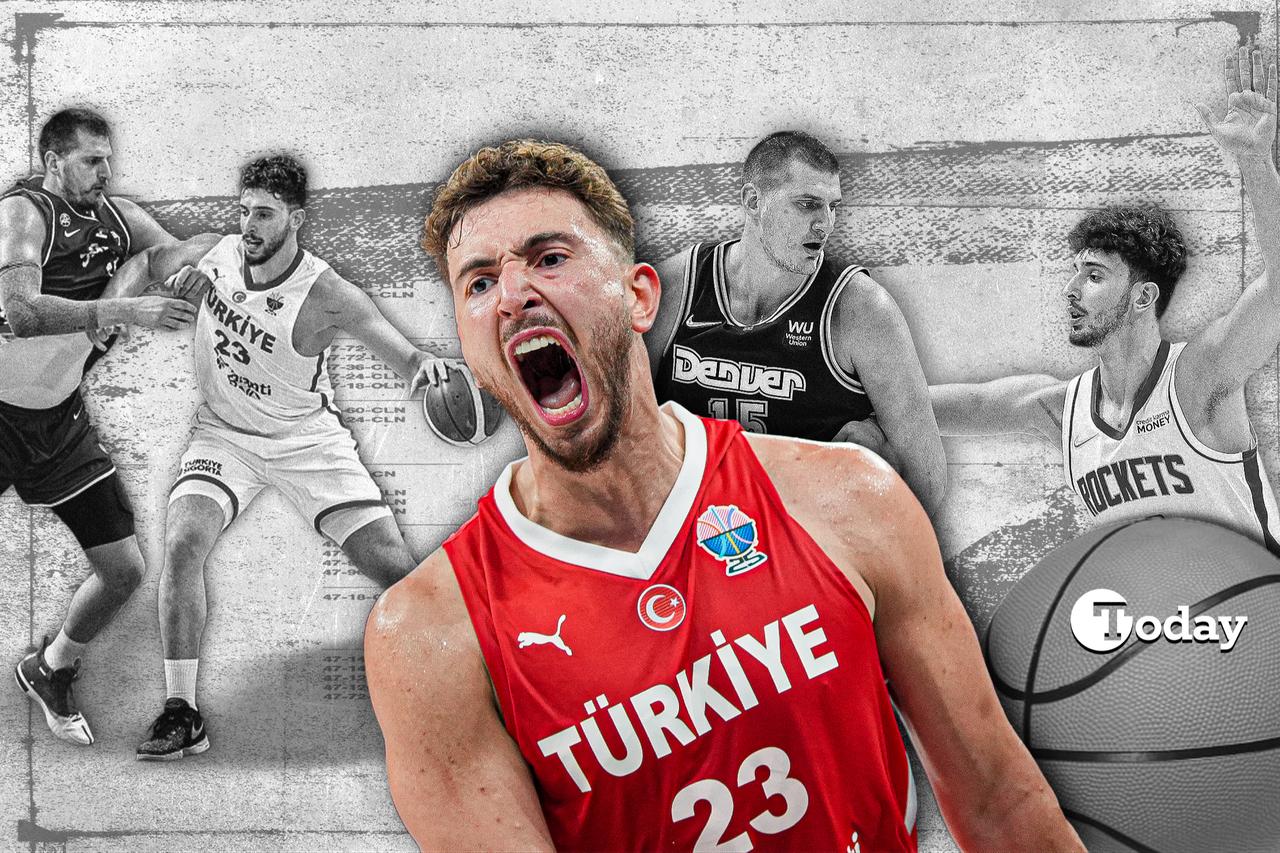
In basketball, nicknames often define a player’s style, potential, and sometimes even destiny. For Alperen Sengun, the moniker “Baby Jokic” followed him from the very first day he stepped onto an NBA court.
His passing vision, post-up skills, and the ability to orchestrate the game as a point-center naturally drew comparisons to Nikola Jokic.
Yet, over time, this comparison shifted from a compliment to a limitation. Sengun wanted to transcend the label. In an interview, he openly stated, "I used to like (the Jokic comparison), but now I have my own."
EuroBasket 2025 became the most vivid on-court reflection of this transformation. Türkiye, competing in Group A against Latvia, Czechia, Portugal, Estonia, and Serbia, won all five games to top the group and advance to the Round of 16.
The defining moment came in the final match against Serbia—a historic 95-90 victory that was more than just a scoreline; it was symbolic.
In that game, Alperen Sengun dominated the floor with 28 points, 13 rebounds, and 8 assists against Nikola Jokic. While Jokic put up 22 points, 9 rebounds, and 4 assists, Sengun’s performance was superior in both scoring and leadership. The crowd’s chants of “MVP” echoed throughout, signaling that Sengun had evolved from a potential star into a figure of prominence.
https://x.com/EuroBasket/status/1963343370396262784
FIBA’s official social media post, reading “Not Baby Jokic. Call him Daddy Sengun.”, showcased the global resonance of this transformation. It was more than a wordplay—it was a statement for basketball’s new era.
This matchup marked the first scene of a generational shift, where a player shed his nickname to assert his own identity. Most importantly, Alperen Sengun was no longer a comparison—he had become a reference point.
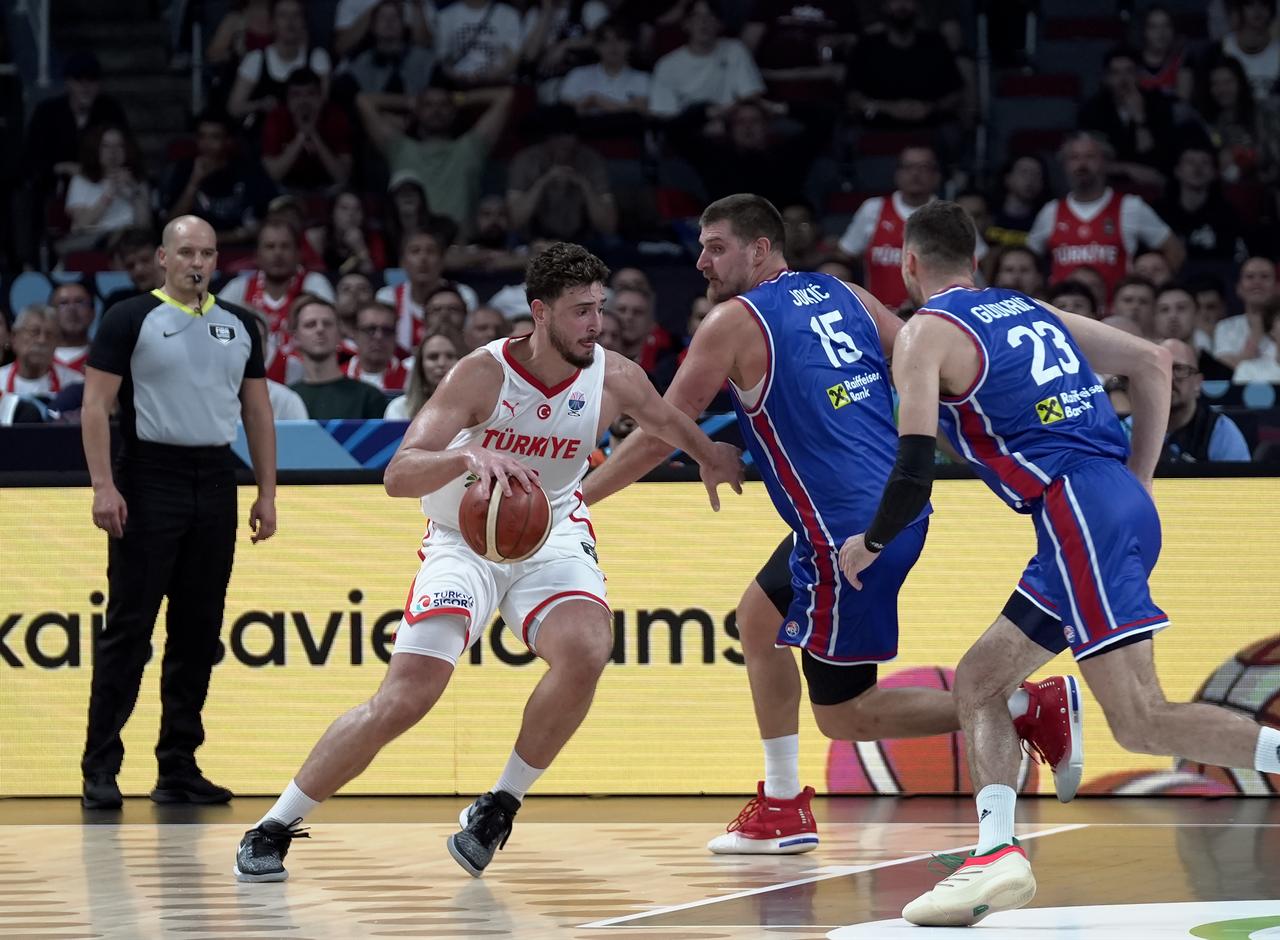
EuroBasket 2025 was not just a contest between nations; it was a stage for individual stars as well. Among all the players, the spotlight unquestionably shone brightest on Alperen Sengun and Nikola Jokic.
Both anchored their teams, serving as the backbone of offense and defense. Yet their impact was measured not only by statistics but also by their presence on the court.
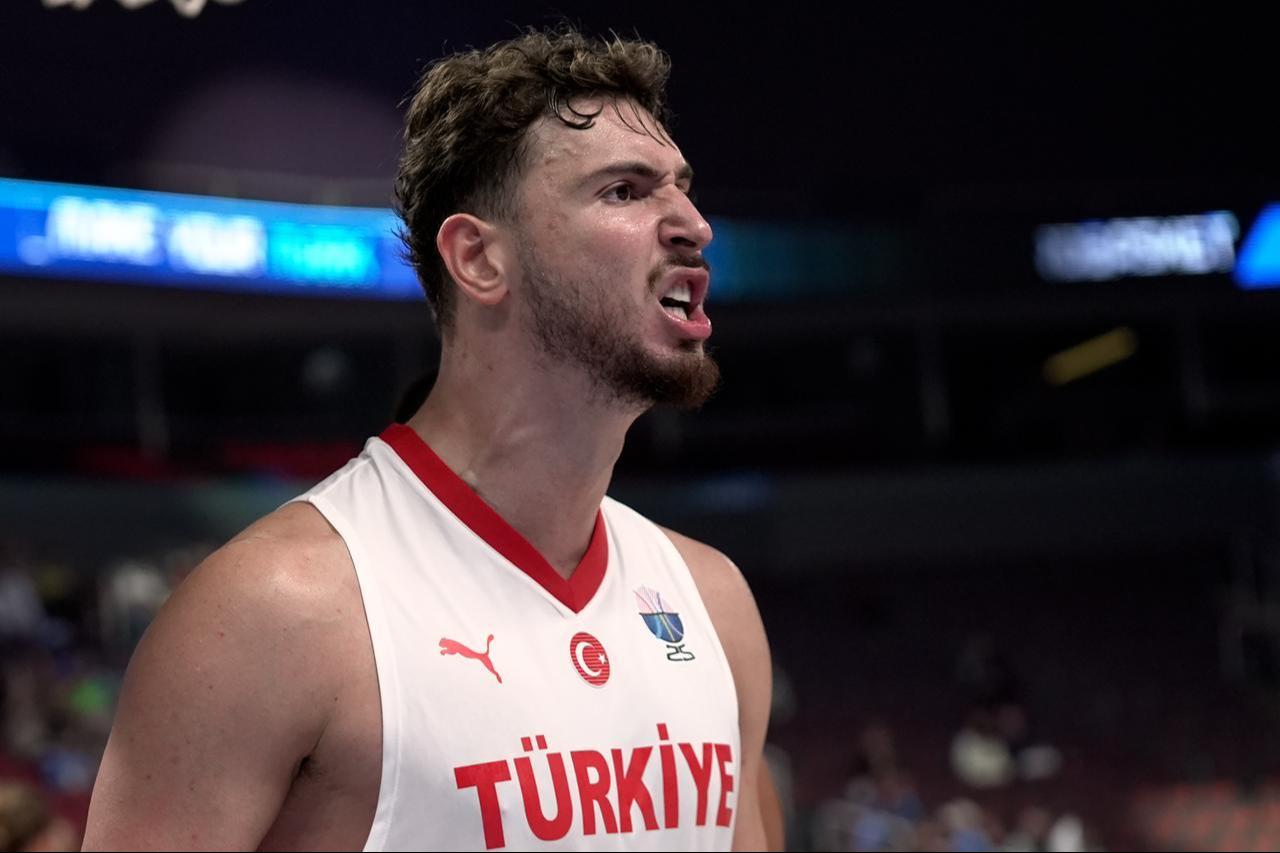
Alperen Sengun: Türkiye’s engine
Across the five group-stage games, Sengun averaged:
His leadership in the Latvia and Serbia games was pivotal for Türkiye topping the group. Sengun did more than score; he orchestrated the game, organized the defense, and took responsibility in critical moments. His clutch plays at the end of games elevated him from star to true leader.
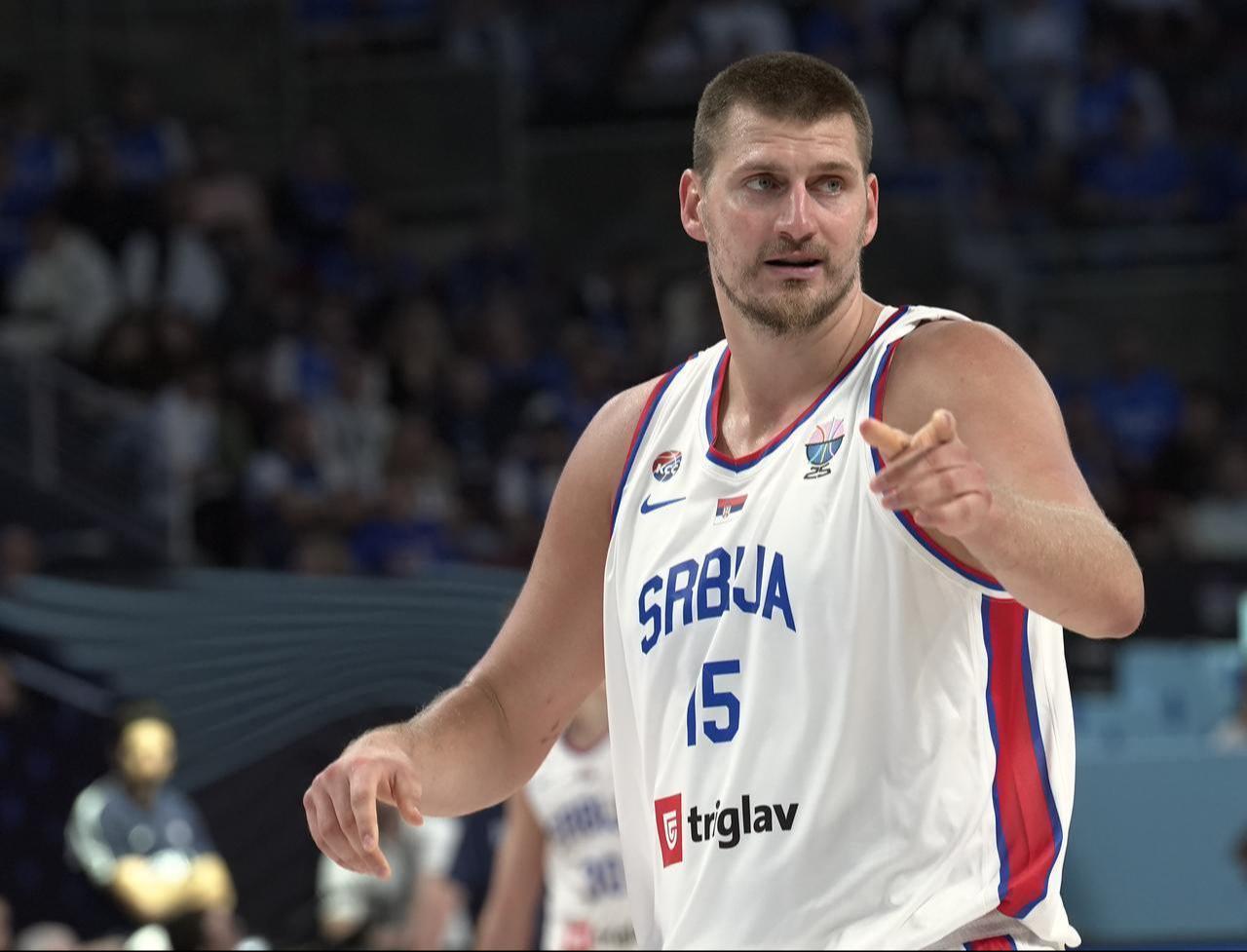
Nikola Jokic: Serbia’s cornerstone
Jokic’s group-stage averages:
Jokic directed Serbia’s offense with his signature playmaking. However, he occasionally struggled to control the tempo. Against Türkiye, Sengun’s physical and mental edge was clear. Jokic’s usual point-center role was not enough—he was no longer facing a “student,” but a formidable “rival.”
Throughout the tournament, European media often ran headlines like “Baby Jokic vs. Real Jokic.” After the Türkiye–Serbia clash, the narrative shifted. Many media posts commented, “Sengun is no longer compared, he is defined.”
On social media, FIBA’s post went viral, solidifying Sengun’s emergence as a global reference point in the basketball world.
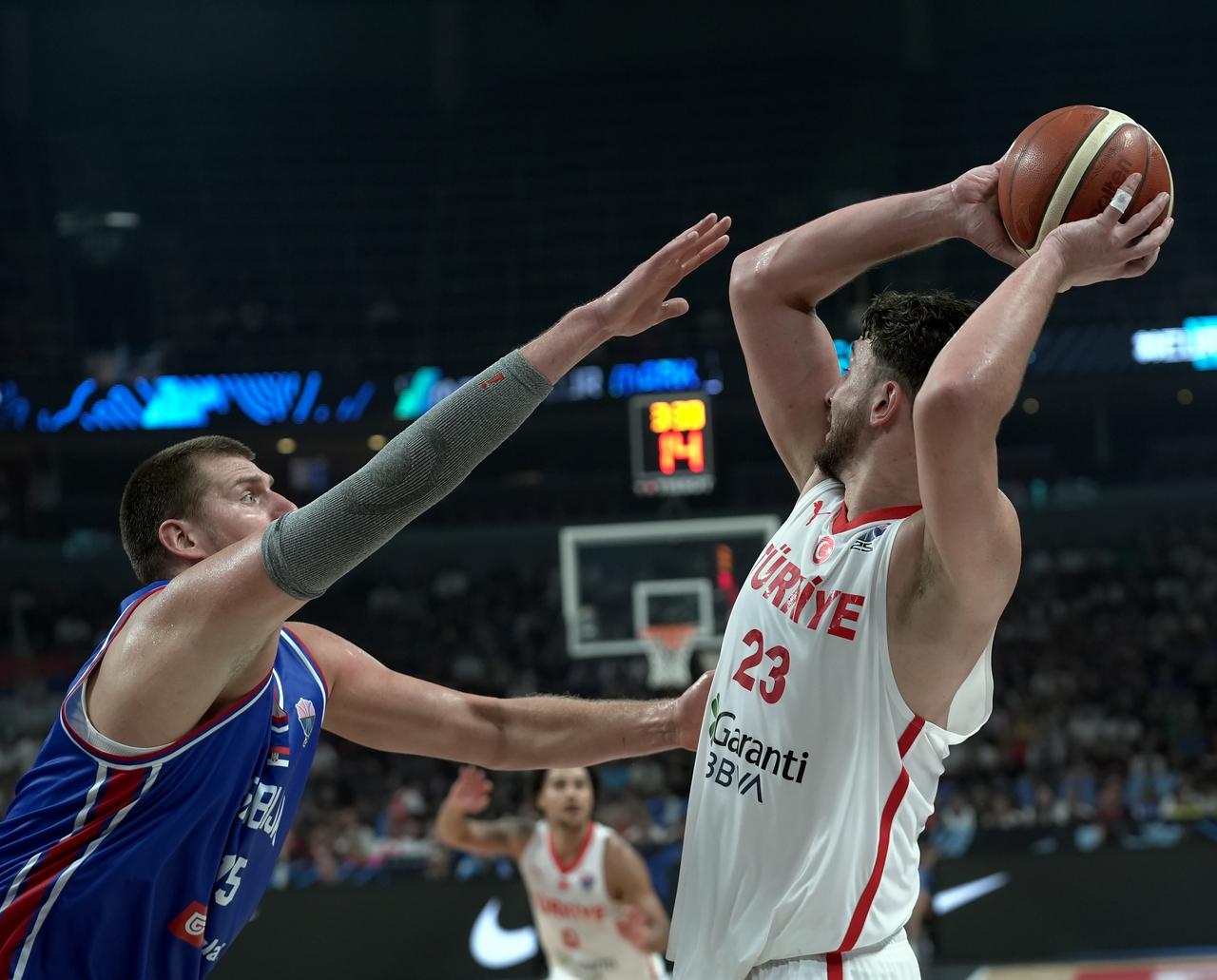
Nikola Jokic is a system player who masters the mathematical side of basketball. He calculates passing angles with precision, dictates the pace of the offense, and manipulates the defense like chess pieces on a board. His “point-center” role shows that modern big men can act not just as post players but as floor generals.
Alperen Sengun, however, internalized and transformed this role rather than copying it. His style is more intuitive and improvisational. When he has the ball, not just the opponents but sometimes even his teammates cannot predict his next move. This unpredictability makes him extremely hard to defend. Against Jokic, Sengun’s spontaneous basketball IQ created a philosophical clash on the court during Türkiye–Serbia.
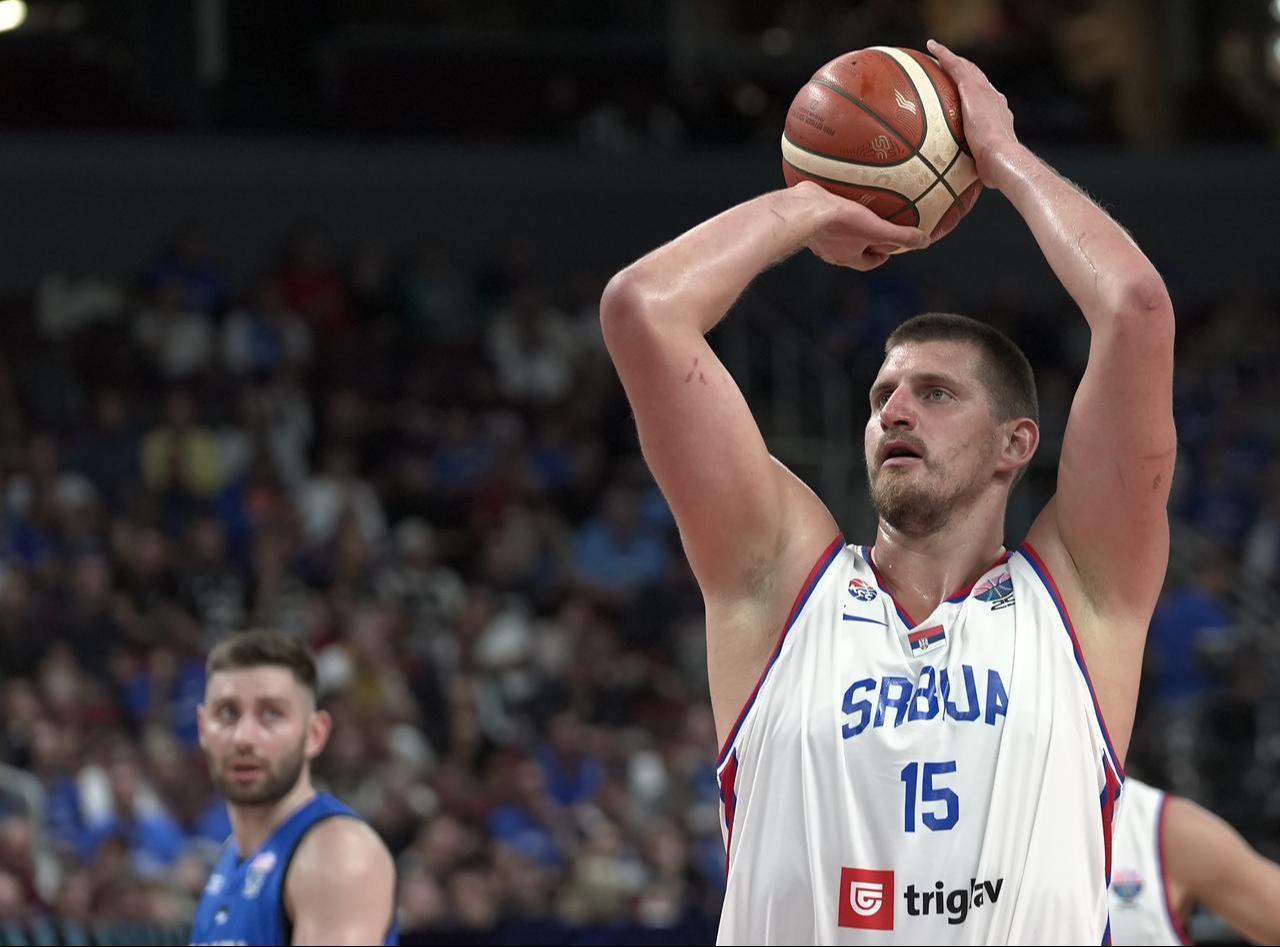
Basketball IQ: Thinking big men
Jokic’s passing vision, particularly in short rotations and exploiting weak-side opportunities, has been repeatedly praised in the NBA. Sengun, at EuroBasket 2025, elevated this vision to another level. In pick-and-roll situations with Larkin, he could either attack the rim or create corner shots, redefining the concept of a “playmaking big man.”
In the fourth quarter, when Jokic slowed down the offense by holding the ball too long, Sengun’s quick decisions and inside-out passing kept Türkiye’s offense fluid. This distinction was felt not only in stats but in the very spirit of the game.
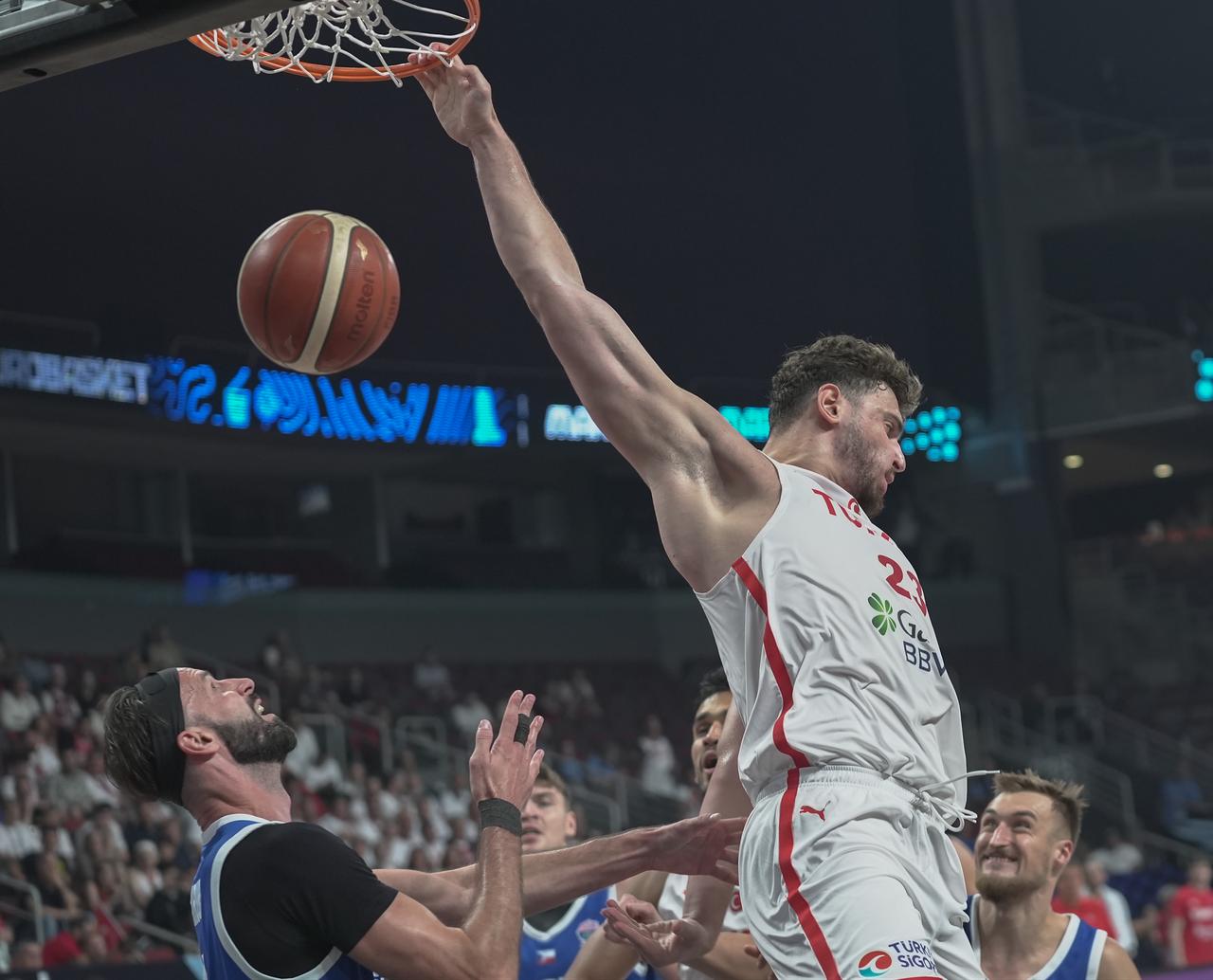
Leadership: Speaking with dunks, not words
Sengun’s leadership manifests on the court rather than in the locker room. Whereas Jokic leads calmly and introspectively, Sengun is energetic, outward, and challenging. Every basket he scored against Serbia carried a message: “I am here. I am no longer just a comparison.”
In the game’s final moments, his telepathic connection with Larkin turned Türkiye’s offense into a symphony. Larkin later stated, “He is no longer Baby Jokic. He is now writing his own story,” highlighting how this leadership was recognized within the team.
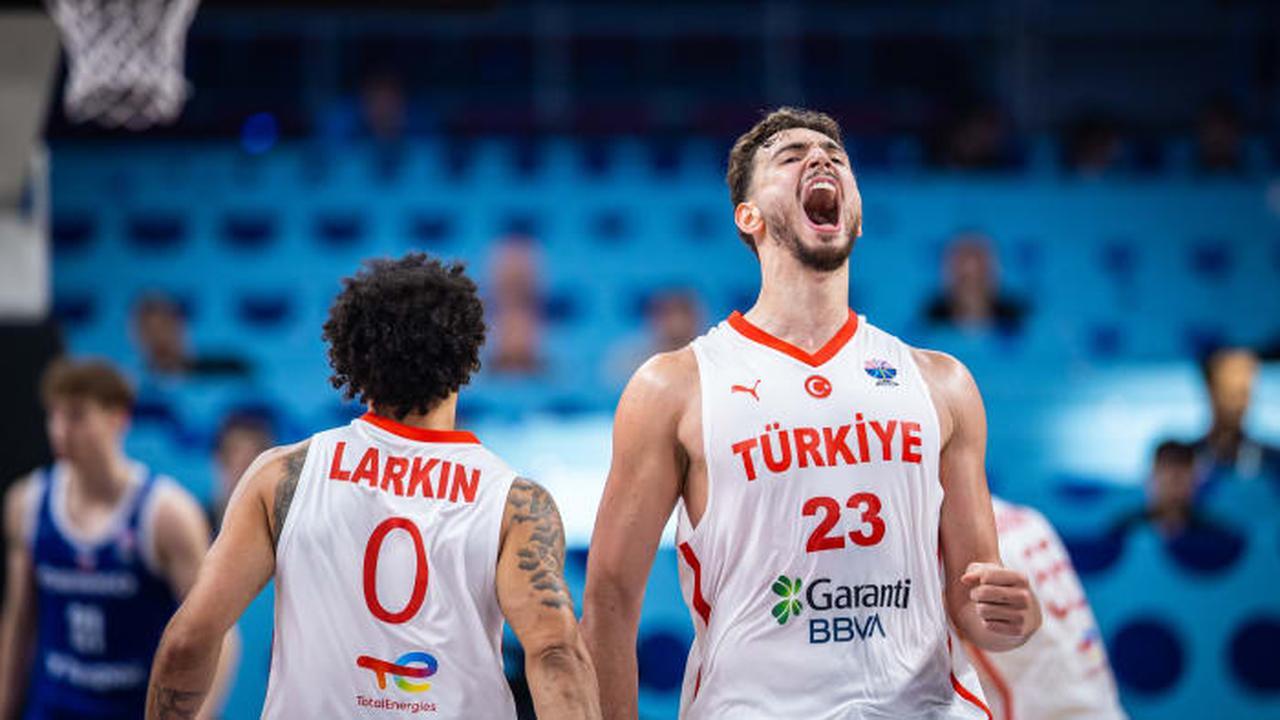
Larkin’s statement: 'No longer Baby Jokic'
At the post-game press conference, Shane Larkin expressed his admiration: “I don’t think he wants that nickname anymore. You can see the similarities in their games, but Alperen has huge goals. He’s extremely confident, with elite-level skills. The sky is the limit for him. He’s far from reaching his ceiling and will keep improving.”
Larkin emphasized that Sengun is ready for the next level: “In his early years, ‘Baby Jokic’ could fit because their styles were very similar. But this tournament proves he’s now bigger and better than ever.”
https://x.com/EuroBasket/status/1963336515280601122
This game was more than a win—it was a manifesto of identity. FIBA’s official social media post, “Not Baby Jokic. Call him Daddy Sengun,” illustrated how perceptions in the basketball world have shifted. Sengun now shines in his own light, no longer in the shadow of a comparison.
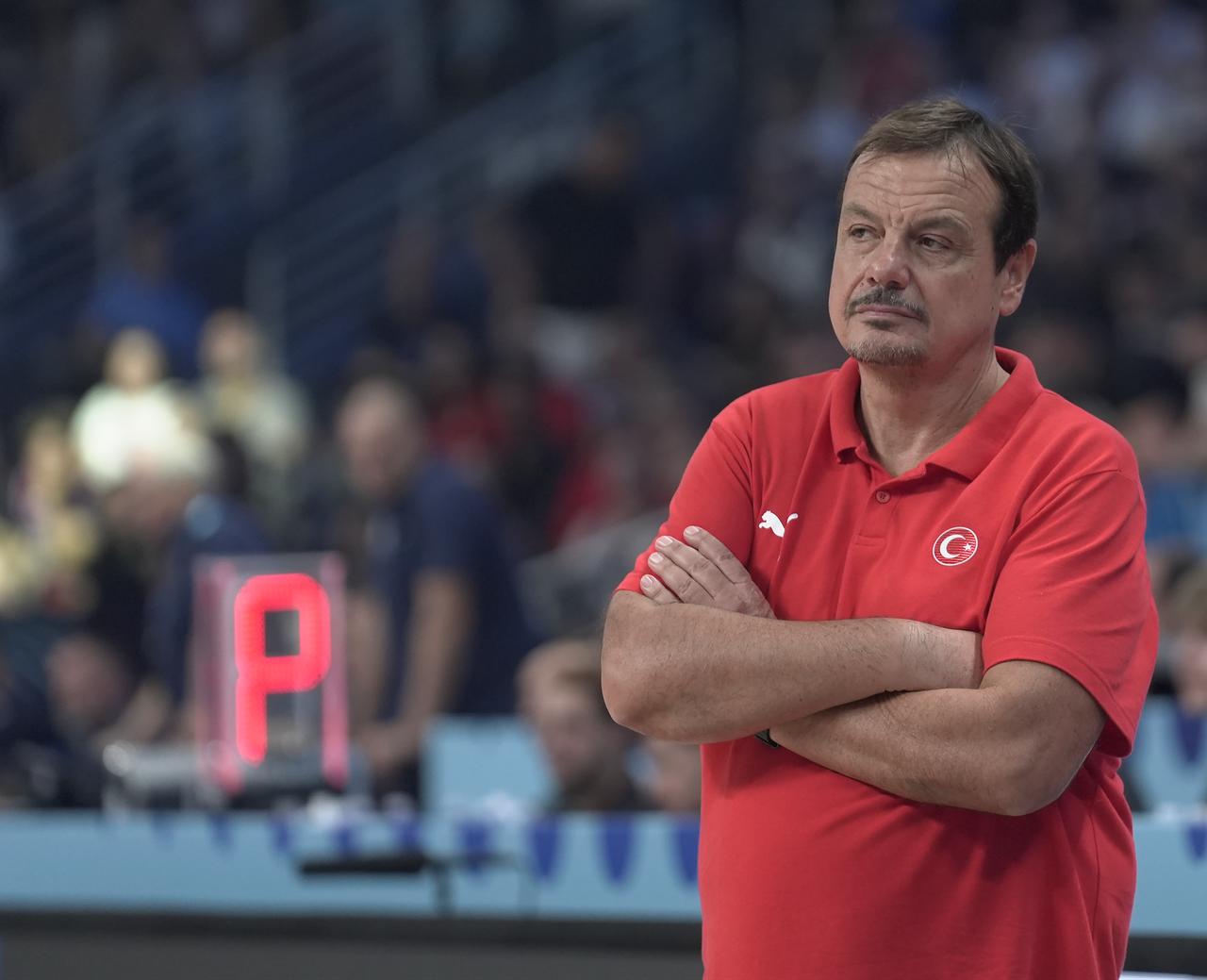
As he prepared for the Serbia match, Ergin Ataman positioned Alperen Sengun not just as a big man, but as the brain of the offense. While designing a defense that constantly narrowed spaces with Larkin and Cedi to disrupt Jokic’s passing lanes, Ataman isolated Sengun in offensive matchups. This strategy limited Jokic’s impact while allowing Sengun to shine on the court.
Speaking to the media after the match, Ataman commented not just on the game, but on the broader politics of basketball: “Giannakopoulos has changed his mind.”
The statement was a nod to Panathinaikos president Dimitris Giannakopoulos’ admiration for Jokic. Ataman framed Sengun’s performance not just as a victory, but as a message. As the balance of power in European basketball shifted, Ataman placed Sengun at the center of this change.
'I’ll raise these fists again when we win a medal'
Ataman’s locker room speech after the match went viral on social media. Turning to his players, he said: “I’ll raise these fists again the day we win a medal.”
This moment was not just motivation; it was the declaration of a goal. Under Sengun’s leadership, the team was no longer just talented—they were committed, determined, and ambitious.
https://x.com/FIBA/status/1963379729349869981
The victory over Serbia was more than just a win; it was the materialization of Türkiye’s ambition in EuroBasket 2025. Leading the group provided both psychological and strategic advantages. The team was no longer just competing—it was chasing a medal. This win marked a turning point that could change the course of the tournament.
Alperen Sengun went beyond being a comparison in this tournament. He is no longer “Baby Jokic”; he has his own style, leadership, and story on the court. His 28 points, 13 rebounds, and 8 assists were more than statistics—they were a declaration of character. This game was the moment he announced his basketball identity.
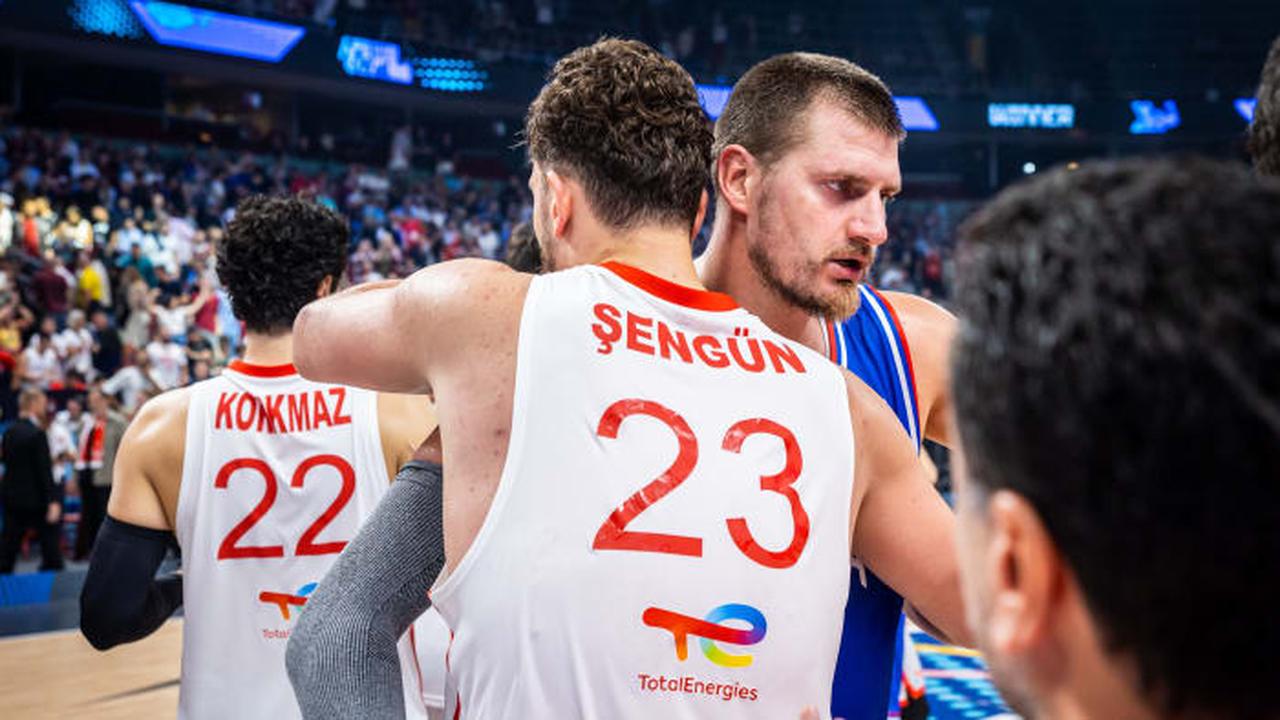
Nikola Jokic remains one of the world’s top big men. However, on the court, there is now a figure who challenges him and plays at the same level: Alperen Sengun.
This rivalry is shaping the future of European basketball. It is no longer just Jokic’s era; a new age with Sengun on the stage has begun.
https://x.com/EuroBasket/status/1963339235001295240
The Türkiye–Serbia clash left its mark not just on the scoreboard but in the narrative of basketball itself. It was the moment a nickname ended, a true identity was born, a team believed, and a nation felt renewed hope.
And perhaps most importantly:
He is no longer Baby Jokic. He is truly Daddy Sengun.